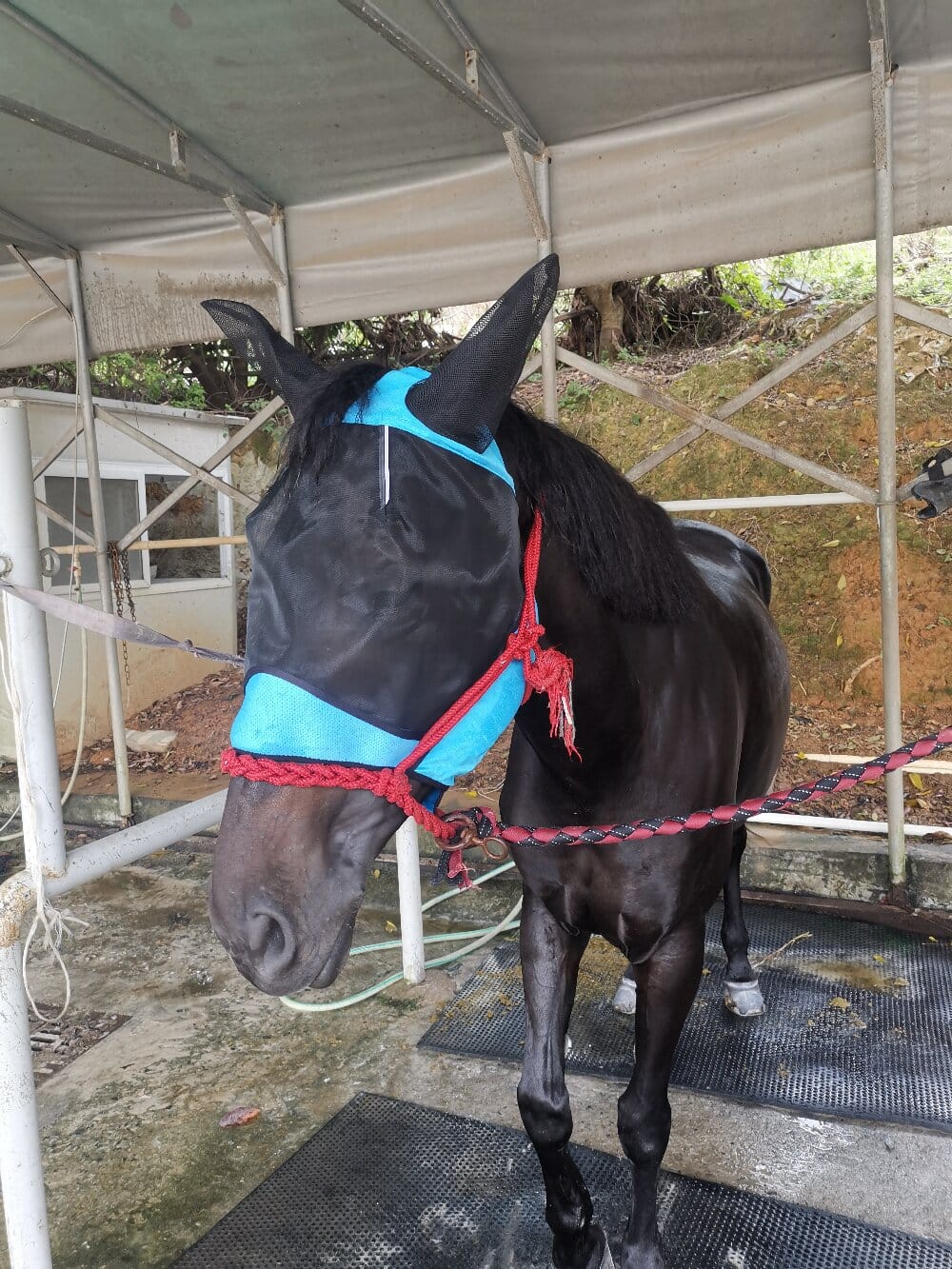A horse fly mask is an essential piece of equine gear designed to protect horses from irritating and potentially harmful insects. Flies, mosquitoes, and other pests can cause discomfort, infections, or even transmit diseases, making fly masks a practical solution for horse owners. These masks are typically made from lightweight, breathable materials and often feature mesh screens to shield the eyes while allowing clear vision. Beyond basic protection, modern fly masks come in various designs, offering additional features like UV protection or extended coverage for the ears and muzzle.
Comparing Different Types of Horse Fly Masks
When selecting a fly mask for your horse, it’s important to consider the different types available and their unique benefits. Below is a comparative analysis of the most common options:
- Standard Fly Masks: These cover the eyes and sometimes the ears, providing basic protection against flies. They are lightweight and affordable but may not offer full-face coverage.
- Full-Face Fly Masks: These extend to cover the muzzle, offering additional protection for sensitive areas. Ideal for horses prone to insect bites around the nose and mouth.
- UV-Protective Fly Masks: Designed with sun-blocking materials, these masks protect against both insects and harmful UV rays, making them ideal for horses with light-sensitive eyes.
- Ear Cover Fly Masks: These include built-in ear covers to prevent flies from entering the ears, reducing the risk of infections or irritation.
Key Features to Look for in a Horse Fly Mask
Not all fly masks are created equal. Here are some critical features to evaluate when choosing the best option for your horse:
- Material: Look for breathable, durable fabrics like polyester or mesh that allow airflow while keeping pests out.
- Fit: A well-fitting mask should stay securely in place without rubbing or causing discomfort.
- Visibility: The mesh should provide clear vision without obstructing the horse’s sight.
- Ease of Cleaning: Masks should be machine-washable or easy to hand-clean to maintain hygiene.
- Additional Protection: Features like UV resistance or extended coverage can enhance the mask’s functionality.
Benefits of Using a Horse Fly Mask
Investing in a high-quality fly mask offers several advantages for both horse and owner:
- Reduced Irritation: Minimizes the risk of insect bites, which can lead to infections or allergic reactions.
- Prevention of Eye Issues: Protects against conjunctivitis and other eye conditions caused by flies.
- Enhanced Comfort: Allows horses to graze and move freely without constant swatting at pests.
- Long-Term Health: Reduces stress and potential diseases transmitted by insects.
Potential Drawbacks and Considerations
While fly masks are highly beneficial, there are a few considerations to keep in mind:
- Overheating: Poorly ventilated masks may cause discomfort in hot weather.
- Fit Issues: Ill-fitting masks can slip, rub, or even impair vision.
- Maintenance: Regular cleaning is necessary to prevent dirt buildup and bacterial growth.
Conclusion: Choosing the Right Fly Mask for Your Horse
A horse fly mask is a simple yet effective tool for safeguarding your horse from pests and environmental irritants. By comparing different types, evaluating key features, and understanding the benefits and potential drawbacks, you can make an informed decision. Whether you opt for a standard design or a full-face UV-protective mask, prioritizing comfort, durability, and functionality will ensure your horse stays protected and content throughout fly season.

